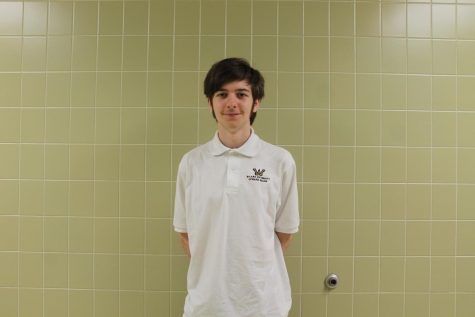World news week of 10/16
On November 16th, 2017 Hurricane Ophelia slammed into Ireland, being the first hurricane to do so in years. Trees and live power lines were knocked into the road, storm surges crashed into the coast along, not just Ireland, but England and Wales as well, strong winds caused damage as far away as Scotland, and three people lost their lives. The storm was gone by the next day and recovery began and is progressing. The storm also carried dust from Saharan sandstorms and Iberian wildfires, turning the sky an orange color the next day.
This week, U.S. backed forces have taken the city of Raqqa from ISIS control. For the past few years, ISIS has used the city as their de facto capital and oppressed its inhabitants. Unseating ISIS from their capital is not only a strategic victory; it serves as yet another proof that ISIS can not hold indefinitely. Hopefully, they lose their grip sooner than later.
The Spanish region of Catalonia has failed to back down from their independence bid by Thursday, October 18th. Madrid is making preparations to go through with their threat of suspending the autonomy of the Catalan region and are planning on holding emergency elections in the region. Unfortunately, it seems as though those elections will only heighten tensions between Catalonia and Spain.
The police force of the city of Dubai will soon be adding hoverbikes to its arsenal as a first responder vehicle. Built by the Russian company Hoversurf, the Hoversurf Scorpion 3 can reach speeds of 70 kilometers per hour, but the batteries only last for around 20 to 25 minutes and has a recharge time of 3 hours. The hoverbike can also fly unmanned, similar to a drone, which ups its top speed to 100 kilometers per hour. It’s currently unclear if the bikes will have practical applications, as Dubai has a reputation for investing in such technologies to attract tourism attention, but it would certainly be interesting to see them in actions!
Puerto Rico, hit by Hurricane Maria some time ago, is still without major facilities. Puerto Rico’s citizens have little to no power, 20 of 51 of Puerto Rico’s sewage treatment plants out of service, and raw sewage is flowing into rivers and reservoirs meaning that the water isn’t safe to drink without taking measures to disinfect it. While recovery efforts are, and have been, underway, this is an enormous task and it will take a great deal more effort to completely recover.

My name is Liam Carcieri. This is my junior year and second year of writing for "The GNA Insider." I am a dual enrollment student and a member of the Upward...







